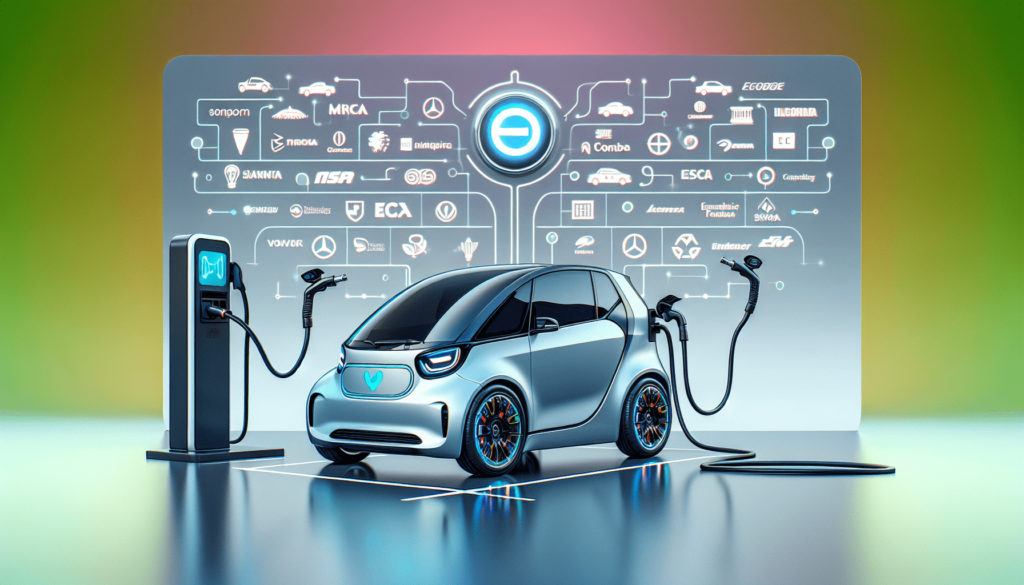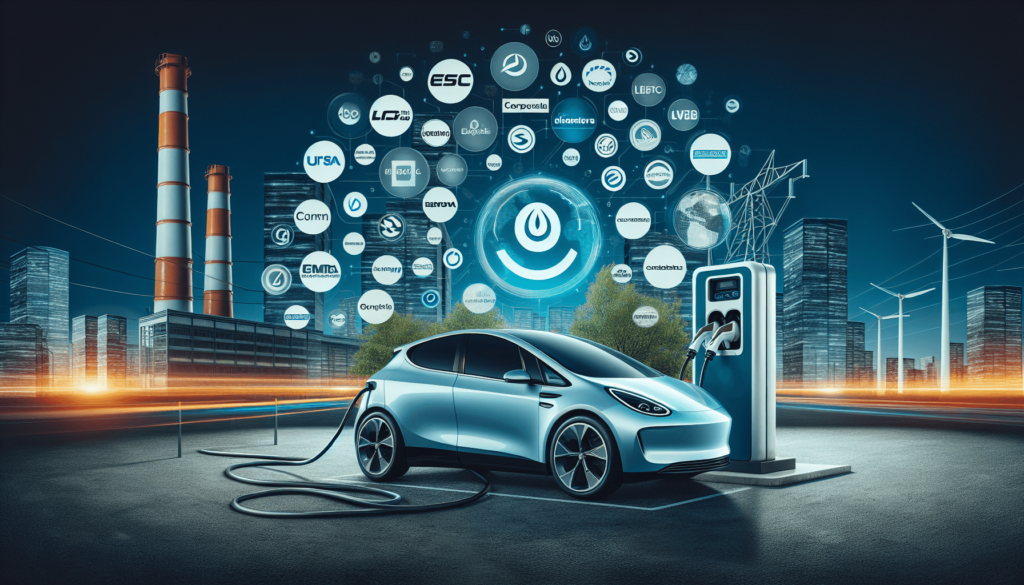Welcome to the article that explores the potential incentives for converting your fleet of vehicles to electric. This article will delve into the various benefits and opportunities available to businesses looking to make the switch to more sustainable transportation options. Whether it’s cost savings, environmental impact, or government incentives, there are numerous reasons to consider making the shift to electric vehicles for your fleet. Let’s take a closer look at the incentives for electric vehicle fleet conversions and how they can benefit your business in the long run. Are there incentives for electric vehicle fleet conversions?
Have you been considering transitioning your fleet to electric vehicles but are hesitant due to potential costs? While the upfront investment may seem daunting, there are actually several incentives available that can help offset the expenses and make the switch more financially feasible. In this article, we will explore the various incentives and benefits that come with converting your fleet to electric vehicles. So, sit back, relax, and let’s dive into the world of electric vehicle fleet conversions!

Government Incentives
When it comes to transitioning your fleet to electric vehicles, one of the most significant incentives comes from the government. Local, state, and federal governments offer a range of incentives to encourage the adoption of electric vehicles. These incentives can come in the form of tax credits, rebates, grants, and other financial incentives to help offset the initial costs of purchasing electric vehicles for your fleet.
Tax Credits
Tax credits are a common incentive offered by government entities to promote the adoption of electric vehicles. These credits allow you to deduct a certain amount of money from the taxes you owe, which can help reduce your overall costs. For example, the federal government offers a tax credit of up to $7,500 per electric vehicle purchased for business use. Additionally, many states and municipalities offer their own tax credits for electric vehicles, further reducing the upfront costs of transitioning your fleet.
Rebates
Rebates are another popular incentive that governments offer to encourage the adoption of electric vehicles. These rebates provide a direct cash payment to businesses or individuals who purchase electric vehicles, helping to lower the total cost of ownership. Rebates can range from a few hundred dollars to several thousand dollars, depending on the jurisdiction and the type of vehicle purchased. Some states even offer rebates specifically for fleet conversions, providing even more financial incentives to make the switch to electric.
Grants
In addition to tax credits and rebates, governments may also offer grants to businesses looking to convert their fleets to electric vehicles. These grants can help cover the costs of purchasing electric vehicles, installing charging infrastructure, and other related expenses. Grants are typically awarded through a competitive application process and can vary in amount depending on the size and scope of the fleet conversion. By taking advantage of these grants, businesses can significantly reduce the financial burden of transitioning to electric vehicles.
Cost Savings
In addition to the incentives offered by governments, transitioning your fleet to electric vehicles can also result in significant cost savings over time. Electric vehicles are generally cheaper to operate and maintain than traditional gas-powered vehicles, leading to lower overall costs for businesses that make the switch.
Lower Fuel Costs
One of the most significant benefits of electric vehicles is the lower cost of fuel. Electricity is typically much cheaper than gasoline or diesel, leading to substantial savings on fuel costs for businesses with electric vehicle fleets. In fact, some studies have shown that electric vehicles can cost up to 50% less to fuel compared to gas-powered vehicles. By reducing fuel costs, businesses can save money and improve their bottom line.
Reduced Maintenance Costs
Electric vehicles have fewer moving parts than traditional gas-powered vehicles, which means they require less maintenance and are less prone to mechanical issues. This reduction in maintenance costs can lead to significant savings over the life of the vehicle. Without the need for oil changes, spark plug replacements, and other routine maintenance tasks, businesses can save both time and money on vehicle upkeep. Additionally, electric vehicles have regenerative braking systems that help preserve the brakes, further reducing maintenance costs.
Tax Incentives
In addition to the upfront incentives offered by governments, there are also ongoing tax incentives available for businesses that operate electric vehicle fleets. These incentives can come in the form of tax deductions, credits, or exemptions that help reduce the overall tax burden for businesses with electric vehicles. For example, some states offer reduced registration fees or sales tax exemptions for electric vehicles, leading to further savings for fleet operators. By taking advantage of these tax incentives, businesses can maximize their cost savings and improve their financial performance.

Environmental Benefits
Aside from the financial incentives and cost savings associated with electric vehicle fleet conversions, there are also significant environmental benefits to consider. Electric vehicles are much cleaner and more sustainable than traditional gas-powered vehicles, making them a more environmentally friendly choice for businesses looking to reduce their carbon footprint.
Reduced Emissions
One of the most significant environmental benefits of electric vehicles is their lower emissions of greenhouse gases and other pollutants. Unlike gas-powered vehicles, electric vehicles produce zero tailpipe emissions, helping to improve air quality and reduce harmful pollutants in the atmosphere. By converting your fleet to electric vehicles, you can significantly lower your company’s carbon footprint and contribute to a cleaner, healthier environment for future generations.
Energy Efficiency
Electric vehicles are also more energy-efficient than traditional gas-powered vehicles, which can help reduce overall energy consumption and reliance on fossil fuels. By using electricity as a fuel source, electric vehicles are able to convert a higher percentage of energy into motion, leading to lower energy waste and greater efficiency. This energy efficiency not only benefits the environment but also helps to reduce operating costs for businesses with electric vehicle fleets.
Renewable Energy Integration
Another environmental benefit of electric vehicle fleet conversions is the potential to integrate renewable energy sources into your operations. By charging your electric vehicles with electricity generated from solar, wind, or other renewable sources, you can further reduce your carbon footprint and promote a more sustainable energy system. Many businesses are now investing in onsite renewable energy generation to power their electric vehicle fleets, creating a more sustainable and environmentally friendly transportation solution.

Employee Satisfaction
In addition to the financial incentives and environmental benefits, transitioning your fleet to electric vehicles can also have a positive impact on employee satisfaction and morale. Electric vehicles are seen as a more modern and innovative transportation option, which can help attract and retain top talent within your organization. By providing employees with access to clean, sustainable transportation, you can demonstrate your commitment to sustainability and corporate social responsibility, which can lead to increased loyalty and engagement among your workforce.
Health and Wellness
Electric vehicles offer a quieter, smoother, and more comfortable driving experience compared to traditional gas-powered vehicles. This improved driving experience can help reduce driver fatigue and stress, leading to better overall health and wellness for your employees. Additionally, the lack of tailpipe emissions in electric vehicles can help improve air quality both inside and outside the vehicle, further enhancing the health and well-being of your drivers and passengers.
Corporate Image
By transitioning your fleet to electric vehicles, you can enhance your company’s corporate image and reputation as a socially responsible and environmentally conscious organization. Consumers are increasingly choosing to do business with companies that prioritize sustainability and environmental stewardship, making electric vehicle fleet conversions a valuable marketing tool. By showcasing your commitment to sustainability through your fleet operations, you can differentiate your business from competitors and attract a more environmentally conscious customer base.
Employee Engagement
Electric vehicles can also help boost employee engagement and satisfaction by providing a more sustainable and eco-friendly transportation option. Employees who have access to electric vehicles may feel proud to work for a company that prioritizes environmental responsibility and sustainability, leading to increased employee engagement and motivation. By offering electric vehicles as a company perk or incentive, you can demonstrate your commitment to sustainability and create a more positive and engaging workplace culture.

Conclusion
In conclusion, there are numerous incentives for businesses to convert their fleets to electric vehicles. From government incentives and cost savings to environmental benefits and employee satisfaction, electric vehicle fleet conversions offer a wide range of advantages that can help improve your bottom line and enhance your corporate image. By taking advantage of the incentives available and transitioning to electric vehicles, you can position your business for long-term success in an increasingly sustainable and environmentally conscious world. So why wait? Start exploring the benefits of electric vehicle fleet conversions today and make the switch to a cleaner, greener future for your business!


